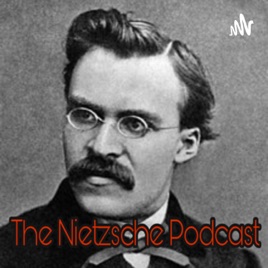
Advertise on podcast: The Nietzsche Podcast
Rating
4.9 from
Country
This podcast has
153 episodes
Language
Publisher
Explicit
No
Date created
2021/06/24
Average duration
96 min.
Release period
7 days
Description
A podcast about Nietzsche's ideas, his influences, and those he influenced. Philosophy and cultural commentary through a Nietzschean lens. Support the show at Patreon: https://www.patreon.com/untimelyreflections A few collected essays and thoughts: https://untimely-reflections.blogspot.com/
Podcast episodes
Check latest episodes from The Nietzsche Podcast podcast
85: Philosophy in the Tragic Age of the Greeks, part 1 - Thales, Anaximander, Heraclitus
2024/02/26
Philosophy in the Tragic Age of the Greeks is one of the more obscure texts in Friedrich Nietzsche’s corpus. There are many good reasons for this: it is unfinished, and ends abruptly; it was never published; and it concerns subject matter that is not as immediately accessible as Nietzsche’s more popular writings. You will not find his major concepts in this work – such as the will to power, or the critique of metaphysics - except insofar as those
ideas appear in the background, inchoate, unnamed… not yet fully formed. In Nietzsche’s interpretation of the Pre-Platonic philosophers of Ancient Greece, we find the starting place for his later philosophical career. The inspiration for many of those great ideas, can arguably be found in his exegesis of these extraordinary figures from the Hellenic world, from the 6th to the 4th century BC.
In today's episode, I'll introduce the text, then we'll cover the first three figures who I've classed as "the first cosmologists": Thales, Anaximander, and Heraclitus. While I'm mostly sticking to the text of the essay, I fill in some details using Nietzsche's lectures on the Pre-Platonics, on which this essay was based.
Episode art: photo of the Temple of Poseidon
more
Q&A #8
2024/02/13
I answered questions from the Patrons. Enjoy!
84: Eckermann’s Conversations with Goethe
2024/02/06
Nietzsche said of this work that it was “the best German book”. For the last nine years of Johann Wolfgang von Goethe’s life, Johann Peter Eckermann journaled about their conversations together. Goethe was a celebrity at the time, and destined to be remembered as perhaps the greatest writer of the German language, certainly of the 19th century. Eckermann, on the other hand, was a farmboy with a talent for copying - whether it was the artwork of Ramberg or the poetic style of Korner. When he met Goethe, who was in his seventies at the time, the young Eckermann looked up to him as the greatest of poets, and wanted nothing more than to record all of his wonderful memories with Goethe. In this work we find no narrative arc or rigorous structure, but simply a series of thoughts and feelings. It is a portrait of Goethe rather than a story about him, and offers a fascinating view into a different time and place.
more
83: Baruch Spinoza’s Geometric Faith
2024/01/30
In the tradition of the great theistic philosophers, Baruch Spinoza presents us with a metaphysical vision of the cosmos, as ordered by God. But in sharp contrast with thinkers such as Pascal, Spinoza's arguments for God are crafted with an attempt of logical precision. In fact, Spinoza structures his arguments as geometric proofs, and considers the only serious philosophy to be a truly mathematized philosophy. In his Ethics, Spinoza gives us a comprehensive system that describes God, Nature, everything.
Nietzsche says of Spinoza, "I have a precursor! And what a precursor!" While he was critical of Spinoza, Nietzsche acknowledged the ideas of Spinoza as profoundly influential on his thought. And yet, Spinoza's work remains famously difficult. Where he fits in to the Western philosophical canon is not readily apparent. Rarely is he portrayed as a great opponent of any one philosopher or school, and it seems that he lacks true antipodes. He is grouped among the three great rationalists, along with Descartes and Leibniz - even though these three come to radically different metaphysical conclusions, and bear little resemblance to one another aside from this one classification of their epistemological stance. And since Spinoza's philosophy is so voluminous, its ideas interrelated and comprehensive, approaching Spinoza and having some idea of where he stands within the discourse is difficult for the average reader. In this episode, we'll consider Spinoza's life and work, and then consider the ways in which his life parallels Nietzsche, and the ways in which his life influenced Nietzsche.
Episode Art: Samuel Hirszenberg - Excommunicated Spinoza
more
ANNOUNCEMENT.
2024/01/26
Important announcement.
82: Blaise Pascal’s Faithful Calculations
2024/01/23
Pascal and Nietzsche are two names of monumental importance in the Western philosophical tradition, but rarely are their names mentioned together. At a glance, there is a wide gulf that separates the two, and seems to place them at irreconcilable odds. Pascal was a devout Christian, whose philosophical works concern the Christian faith: his most famous argument is the wager, which is a kind of apologetic device for bringing people into the faith. Nietzsche, on the other hand, carries out a philosophical project which is anti-Christian. He says he has no taste for faith in God, and that this faith is an indelicacy among thinkers.
Today, we will examine Pascal's life, and the basics of his philosophy. Then, we will compare these two malcontents of the Enlightenment. Both question the supremacy of human reason, and offer an alternative to the materialistic concerns of a secular society. Both were men afflicted with ill health, and who struggled with mental illness. But they come to completely contrasting views in their assessment of life. In spite of this, there are ways in which Pascal's influence may have lasting importance for understanding Nietzsche. In Daybreak, Pascal is a stand-in for Christian hatred of mankind, who may have shaped Nietzsche's psychological analysis of Christianity. And in the eternal recurrence, we arguably find a variation on Pascal's Wager. While Pascal urges us to bet on God, Nietzsche's invitation is to bet on the world.
“The Only Logical Christian”: Nietzsche’s Critique of Pascal by Brendan Donnellan, available on JSTOR: https://www.jstor.org/stable/10.5149/9781469656557_oflaherty.12?seq=10
more
81: Michel de Montaigne - “What Do I Know?”
2024/01/16
Nietzsche listed Michel de Montaigne (1533-1592) among the best French writers of the Renaissance, and called him a link to classical antiquity. The personal seal of Montaigne read, “What do I know?” For Montaigne, doubting was no less pleasing than knowing, and he exemplified the philosopher’s proclivity to inquire about every proposition. In his work we find the forerunner of not only skepticism, but Descartes’ methodology of doubt and empiricist bent of Bacon. He is the inventor of the essay, a man who called his own mind “wandering and diverse”, and who wrote candidly about life, ethics, and the classics. He is a man of contradictions, who disparaged book-learning but whose works are abundant with quotations. In this episode, we’ll consider his essays, Of the Education of Children, Defense of Raymond Sebond, Of Friendship, and That Philosophy is to Learn to Die, as well as take a brief peek into a handful of others. Join me in exploring the man Saint-Beauve called, “the wisest Frenchman who ever lived.”
more
Untimely Reflections #27: Devin Goure & the Nietzschean Left
2024/01/09
Devin Goure is a scholar with a background in philosophy, an interest in psychology, mental health & neurodivergence. He holds a PhD in political theory. He's known as Left Nietzschean on X/Twitter: https://twitter.com/DevinGoure
You can find Devin's substack here: https://devingour.substack.com/
In this conversation, Devin and I discuss the meaning of leftism in modernity. I asked him a number of questions concerning how the ideas of Nietzsche can be used for the left. How does Nietzsche compliment a Marxist philosophy? Where does Nietzsche conflict with Marx? Or with Hegel? How can we square an anarchist reading of Nietzsche? And what are the errors in interpretation of figures like B.A.P.?
more
80: Gilles Deleuze, pt. 2: Becoming-Active
2024/01/02
In this second part of our exploration of Deleuze, we go straight into the Deleuzian understanding of ressentiment, and the significance of Nietzsche's distinction between ressentiment and the bad conscience. Deleuze's interpretation is predominantly psychological/physiological, and he sees the origins of ressentiment in the "inverted image" produced by reactive forces. Ressentiment therefore does not emerge from a historical power relationship, but from the disruption, degeneration or failures of the active force of memory to regulate the reactive consciousness and unconsciousness. Deleuze describes four forms of nihilism in Nietzsche: negative, reactive, passive and active, and we'll examine how they progress and relate to one another. Towards the end of the talk, we'll consider the camel, lion and child but with fresh eyes, given all that Deleuze has established. Of chief concern is how the triumph of reactive forces can be reversed, and the great becoming-reactive that characterizes human history turned into a becoming-active. This episode will not make much sense unless you've listened to the first part, in episode #79, as the concepts contained here depend on an understanding of active and reactive, sense and value, genealogy, and differential metaphysics, all of which are covered in that episode.
more
The Dionysmas Special
2023/12/23
Multiple discourses on birth, death & resurrection. Featuring Andrei Georgescu, Vivienne Magdalen, Mynaa Miesnowan. Includes a segment of where my wife and I read Youtube comments. Here's to another year of the podcast!
Episode art: Dionysian Ghost of Christmas by John Leech
more
79: Gilles Deleuze, pt. 1: Against the Dialectic
2023/12/18
Giles Deleuze is one of the most significant figures of French postmodernism, famous for his work with psychoanalyst Felix Guattari. In this episode, we're going to consider Deleuze's work, Nietzsche and Philosophy. In the words of Deleuze, the opposition to Hegel runs through the entirety of Nietzsche's work as its cutting edge. Nietzsche's philosophy is truly 'against the dialectic': as Nietzsche's work is perspectival and pluralistic, which represents the only significant challenge to the dialectical mode of thought. In contrast to dialectical labor and seriousness, Nietzsche's way of thinking affirms difference. Nietzsche asserts that being is not premised on negation, but affirmation, in which each force asserts its difference and enjoys that difference. In Deleuze, we find a new systemization of Nietzsche, in which Nietzsche's critique of morality, religion and the sciences can be reconceptualized as part of a struggle on Nietzsche's part against the triumph of reactive forces. Deleuze offers us a new language for discussing and understanding Nietzsche's work, and a radical re-evaluation of the eternal recurrence and the will to power. In this first part of our two-part series on Deleuze, we're going to consider Nietzsche's anti-Hegelianism, Deleuze's interpretation of sense, value & genealogy, the concepts of active and reactive, Nietzsche's typology, the metaphor the dicethrow, and the eternal return considered as a Nietzschean theory of time.
more
Untimely Reflections #26: Andrei Georgescu (Artiexus) - Seedless Flowers & Materialist Theories of Creativity
2023/12/12
I'd originally planned to launch into Deleuze this week, but I'm busy playing shows all weekend and decided to release this instead. I think this was a great episode, perhaps one of the best Untimely Reflections yet.
Andrei Georgescu is an old friend of the show. He's a writer, a graphic designer, and a podcaster. A few months ago, he published an essay called, "Seedless Flowers: Artificial Intelligence and Creativity Fetishism", in which he analyzes the public reaction to art created by artificial intelligence, and the popular prejudices about creativity. Artists tend to believe that creativity is something which has to come from a being with a soul, treating it as a magical happening that is somehow beyond the material reality. A.I. art challenges that viewpoint, demonstrating the possibility of creativity coming from a collection of metal and wires. We discuss the "ugly duckling" theory of art, in which we value the effort that went into the piece over the final product or the quality of the piece. Such ideas compel us to dismiss beautiful works that were produced or aided by artificial intelligence, while holding up sub-par works as 'true art'. Our conversation about art takes us into my theories about art as communication, the origins of linguistic communication, the possibility of mapping the logical structures of languages. Towards the end of the episode, we take a look at the passage of Nietzsche's from The Gay Science, entitled, "The Genius of the Species", and argue over the importance of consciousness.
We originally recorded a discussion about the article a couple of months ago. Unfortunately, fate was unkind and our first conversation about it was lost. I really kicked myself over that one, since it was my fault. Nevertheless, the timing was right to attempt it again, and I think we had a fascinating conversation. You can find some excellent video essays on his Youtube Channel, @Artiexus: https://www.youtube.com/@artiexusAndrei's article, the jumping-off point for this conversation: https://andreigeorgescu.ca/seedless-flowers-artificial-intelligence-and-creativity-fetishism/
Episode art: Prayer by Andrei Georgescu
more
Podcast reviews
Read The Nietzsche Podcast podcast reviews
Colerain15707
2024/01/18
Smooth
Quiet coffee shop like atmosphere. Narrator is knowledgeable almost to the point of disbelief in the subject. A wealth of information. Intro is tastef...
more
Elkenny559
2024/02/17
Huh?
Dis- syfil?
DisciPLE
Ornamentation4All
2023/12/24
“Caesar was a bottom.”
This 2023 Christmas episode was a treat. ✨💖👍🏻 “There are Nietzschean bakers out there.”
Also, Schopenhauer didn’t like anyone, so whoever wrote tha...
more
Neacus
2023/09/23
Look elsewhere
A very liberal and jewish perspective on Nietzsche's work. This is a great place to hear the opinions of the modern academic orthodoxy of open borders...
more
Bing-1979
2023/08/21
Thank you!
Excellent, thoughtful in depth analysis of the philosopher’s thoughts and life. Thank you!
waha-ishwa
2023/09/05
Not Very Objective
The host idolizes/worships Nietzsche, so seldom views his writings through a critical lens and is dismissive of anything remotely critical. I guess if...
more
Oswald Toynbee
2023/05/17
Topic Suggestion
Have you ever came across The Meaning of Militia: Understanding and Appreciating the Sociocultural Significance of Militia Systems by Sacco Vandal? I’...
more
Viviennemagdalen
2023/03/11
Articulate, measured, seems to admire and accurately present Nietzsche
I find this podcast very soothing. I’m obsessed with Nietzsche and have been for 20 years. I rarely if ever hear any commentary on Nietzsche’s work th...
more
Merlin Circle
2023/02/24
High caliber, highly recommended
Very cool podcast. Depth of knowledge and focus of subject matter are of super fine quality, and not for nothin’—the guy’s voice is A++
FourMann 25 xx76 swag maater
2023/02/23
Wonderful!
Almost every episode I learn something incredibly interesting about myself or the world of ideas. Understanding Nietzsche a bit more than I used to, h...
more
Podcast sponsorship advertising
Start advertising on The Nietzsche Podcast & sponsor relevant audience podcasts
You may also like these philosophy Podcasts

4.6
869
204
Casual Preppers Podcast - Prepping, Survival, Entertainment.
Casual Preppers

4.7
1679
414
The Survival Podcast
The Survival Podcast

4.6
265
90
The Zen Mountain Monastery Podcast
Zen Mountain Monastery
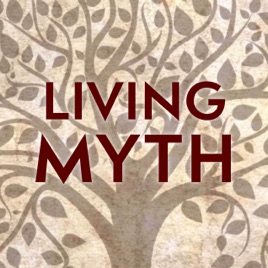
4.9
751
69
Living Myth
Michael Meade
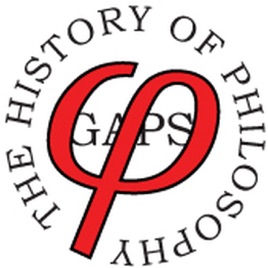
4.7
1461
446
History of Philosophy Without Any Gaps
Peter Adamson
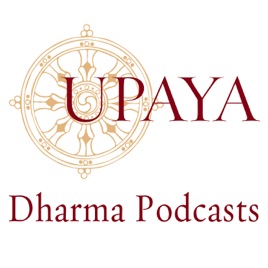
4.5
229
51
Upaya Zen Center's Dharma Podcast
Joan Halifax | Zen Buddhist Teacher Upaya Abbot

4.7
316
289
Stoic Coffee Break
Erick Cloward
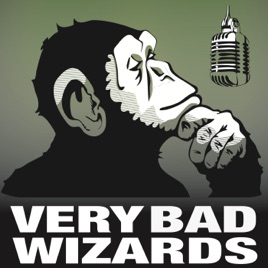
4.8
2530
282
Very Bad Wizards
Tamler Sommers & David Pizarro
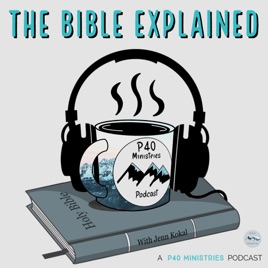
4.9
97
906
The Bible Explained
Jenn Kokal
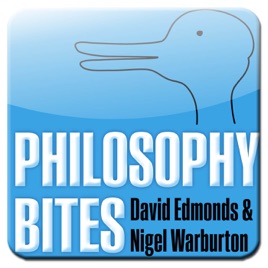
4.5
1468
372
Philosophy Bites
Edmonds and Warburton



